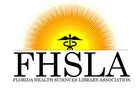|
Start the new year off right by renewing your FHSLA membership! We value your membership and participation in FHSLA, and we hope that you benefit from the meetings, networking, continuing education, and professional support from the organization and its members.
Dues remain $15 ($15.75 via PayPal to cover processing fees) and you are welcome to visit our membership page: fhsla.org/membership.html to pay online or to print out the mail-in form. Please remember online renewal involves a TWO-STEP process: 1) fill out the membership form, then 2) click the PayPal button just below the form to submit your dues. It’s really important to complete both steps so that we know who you are! Membership renewal is also a great opportunity to express interest in serving as a FHSLA officer or committee member. As a former officer, I can attest, working with FHSLA and the board is a very rewarding experience in a supportive environment. If you’d like to get involved, please let a board member know or check the appropriate box on the membership form and we’ll reach out to you. Also, please consider joining the Honors & Awards Committee, the Membership Committee, the Continuing Education Committee, the Nominating Committee, the Program Committee, or the Strategic Planning Committee. Thank you for your membership and please spread the word about FHSLA to your coworkers, library students, and colleagues. Dear Readers, This month's member resource spotlight is brought to you by FHSLA president and Borland Librarian, Susan Harnett. If you have a favorite resource that you would like to share on the FHSLA blog, please email us at [email protected] Susan Harnett, Medical Information Services Librarian at Borland Library, University of Florida is an active Institutional Animal Care and Use committee member; and works closely with investigators to fulfill the literature search for animal alternatives mandated by the Animal Welfare Act. Investigators are required to perform a literature search for the 3Rs: Replacement or alternatives to animal models in research; Reduction of the number of animals needed to obtain significance; and Refinement of experimental procedures to cause the least physical pain or psychological distress to research animals. For librarians who may be new to 3R searching or who want a better understanding of this controversial issue, she recommends visiting the Animal Welfare Information Center (AWIC) at the National Agricultural Library. nal.usda.gov/legacy/awic
AWIC contains information and resources on all aspects of experimental animal welfare. One section presents the various federal, state, local and international laws that pertain to the use of animals in research. These are essential in understanding the evolution of animal protection laws. Of particular interest to librarians is the section on Alternatives Literature Searching. This section discusses the rationale behind the 3R literature search, developing a search strategy and suggests appropriate databases for specialized searching. A worksheet, animal alternative thesaurus and other resources are provided for guidance with developing searches. AWIC also contains international information and database resources as well. For librarians who may want additional information and training. AWIC offers a popular workshop, “Meeting the Requirements of the Animal Welfare Act,” several times a year, with the next workshop scheduled for March 9, 2022. Other valuable and informative workshops and tutorials are available on topics ranging from IACUCs to proper rodent restraint techniques. AWIC is an invaluable resource for librarians who work with animal researchers and investigators; who might be interested in ways to expand services to the research institution; or who might be interested in pursuing a deeper relationship with their institution by becoming an IACUC member.  Photo credit: National Institute of Health Photo credit: National Institute of Health Did you know: -glaucoma affects 3 million Americans -glaucoma is the 2nd leading cause of blindness in the US -glaucoma may have no symptoms FHSLA is pleased to support Glaucoma Awareness Month by sharing the below educational resources for professionals and patients. CDC Vision Health Initiative: glaucoma resources for professionals and consumers. www.cdc.gov/visionhealth/index.htm NIH/National Eye Institute: glaucoma resources for professionals and consumers. www.nei.nih.gov/ National Institute of Health Glaucoma Awareness Month: resources to promote awareness. www.nei.nih.gov/learn-about-eye-health/outreach-campaigns-and-resources/glaucoma-resources/glaucoma-awareness-month University of Florida Health: consumer-based information on glaucoma. ufhealth.org/glaucoma |
Blog EditorArchives
May 2025
Categories
All
|

 RSS Feed
RSS Feed